|
Synopsis:
Mainstream is a family suspense drama about three young couples whose five-year-old daughters disappear one August afternoon from a birthday party. Each of the couples wrestles with its own set of issues leading up to the disappearance. Mainstream finds each couple at a pivotal point in relationships and career choices when the disappearance occurs. Barbara has recently found out that her husband, Roy, has embarked upon an extramarital relationship while she’s been grieving a difficult miscarriage. Randa’s husband, Jonathan, has relocated his family to work for Roy, and is disillusioned by Roy’s work tactics and by his affair. Jonathan’s sister, Joella--who quit school years ago and has recently started to college--has just learned that her house is being foreclosed upon. How can she leave Luke, even if he is a liar and cheat, when he is hitting rock bottom? Mission statement: Mainstream is, at the heart, a novel about marriage and the need for emotional and physical intimacy in marriage. Too often partners look outside their marriage to fill the void when one of these is lacking. I have seen many marriages fail inside the church, and too many betrayals of this nature. I fear that avoiding the topic of intimacy may contribute to the problem. When people feel a void, they sometimes, sadly, divorce not only their spouse but also their relationship with God. Other couples lead separate, but distant lives within the same house for the sake of their children, finances, or even a misconception that God wants them to do so. I believe there’s a need in Christian literature to face these types of temptations as directly as we face issues like greed, alcohol, or violence. I’d like to think I could take a small step in that direction. Objective and theme of Mainstream All three marriages in Mainstream suffer, in one manner or another, from a lack of genuine intimacy, and the individuals within those marriages deal with their issues in different ways. When their daughters disappear one day, the women are forced abruptly to face their priorities and their choices. The marriage of Randa and Jonathan is the strongest of the three, the one with the greatest promise for survival (not that any is without hope). Still, Randa withholds her deepest being from Jonathan. Even when they are physically intimate, Jonathan senses that Randa is not entirely present emotionally. Because of events in her past—an absent mother, a distant father, and an unfortunate relationship with a man—she believes herself unworthy of Jonathan’s love. Because we know that we are unworthy of God’s love, many of us struggle in the same way to give ourselves fully to him. Randa cannot open herself up emotionally to Jonathan for fear of being hurt or hurting him. Through the course of the novel, Randa comes to terms with what is missing in herself and finally gives herself to the man she so deeply loves. In the marriage of Barbara and Roy, Barbara, like many women, is uncomfortable with physical intimacy. She tolerates it out of a sense of duty, but Roy senses her distaste and resents her for it. She is just beginning to overcome her discomfort when she suffers a heartbreaking miscarriage. After this, she withholds herself more than ever from Roy, and he turns to another woman. As Barbara recovers from her miscarriage, she grows to understand herself and her issues better than before, and to long for true intimacy with her husband. However, by the time she is ready, Roy’s betrayal may have gone too far. She also grows spiritually through this process. In the third marriage, Luke and Joella have a solid physical relationship but lack emotional intimacy. As Joella commences to establish her independence as a student and a woman, she finds emotional intimacy with a younger man. As the novel approaches its climax, Joella comes to realize that this form of betrayal is just as serious as physical infidelity. Although Luke has many faults and has betrayed her in the past, can she justify leaving him for another man? First she must make a genuine effort to find the emotional intimacy she craves inside her marriage. She must also come to terms with the role she has played in allowing events to unfold, as well as the seriousness of her commitment to Luke.
1 Comment
I may have shared some of these thoughts before, but people keep asking me about my inspiration for the Sugar Sands novels. Each time I think about how to answer, I believe I go a bit deeper.
Joy After Noon Carl Jung says: “The afternoon of life is just as full of meaning as the morning; only, its meaning and purpose are different.” Jung goes on to describe life's afternoon as the time when we begin to shift away from the ego being the dominant force in our life and move toward a journey that has real meaning. I also like the following quote: In the afternoon of your life, you don’t do life. You do what resonates with the callings of your soul. When does the afternoon of life begin? I don’t believe the afternoon of life begins at a particular age, or even stage of life. In JOY AFTER NOON, Ray has been pursuing career success and material acquisitions, and experiences a significant change of direction. Some fairly disastrous events in his workplace precipitate the change—events that threaten not only his financial stability but the core of who he is. Initially, the idea for Sugar Sands Book 1 and the title of the novel, Joy After Noon, was that Joy’s life has been lonely (and joy has been elusive) since her parents died when she was sixteen, and she has about given up on finding love when she meets Ray. She comes into his ready-made family and, for a time, this seems like a mistake. However, in the afternoon of her life, she finds love and joy. Song of Sugar Sands Sugar Sands Book 2 is Song of Sugar Sands (published in 2019). Although I’ve always been someone who seeks a higher power (and feels such a presence in my life), I’m also a person who struggles with doubts: doubts about churches, denominations, religion, and myself. So I decided to put a character with these kinds of doubts (Acadia) in a relationship with a man of such a deep faith he feels compelled to share his faith with everyone he encounters (Peter). SONG OF SUGAR SANDS is a novel about—in the words of William Faulkner—the human heart in conflict with itself. Who hasn’t, at least occasionally, struggled with doubts about her faith in God or about God’s personal interest in her life? Also, relationships are difficult at their best, but particularly so when the individuals have differing views on faith. Still, there is hope. Song of Sugar Sands tells the journey of Acadia’s relationship with Peter and of her path toward deeper faith. April 20, 2020
My first published book (other than textbooks) was “Pshaw, It’s Me Grandson”: Tales of a Young Actor. It’s a hard book to categorize because it’s largely memoir, but based more on my dad’s memories than on my own. He shared them with me by means of a series of cassette tapes he recorded while watching his grandson working on the television series, “Christy,” based on the award-winning novel by Catherine Marshall. Although the book didn’t sell many copies apart from those I sold in my hometown and my dad’s, it is still one of my favorites. I just realized it’s available for sale as a “Nook” e-book through Barnes & Noble. https://www.barnesandnoble.com/s/%22Debra%20Coleman%20Jeter%22?Ntk=P_key_Contributor_List&Ns=P_Sales_Rank&Ntx=mode+matchall. My most recent published book is Song of Sugar Sands (published in 2019). Although I’ve always been someone who seeks a higher power (and feels such a presence in my life), I’m also a person who struggles with doubts: doubts about churches, denominations, religion, and myself. So I decided to put a character with these kinds of doubts in a relationship with a man of such a deep faith he feels compelled to share his faith with everyone he encounters. Song of Sugar Sands is a novel about—in the words of William Faulkner—the human heart in conflict with itself. Who hasn’t, at least occasionally, struggled with doubts about her faith in God or about God’s personal interest in her life? My next book (Sugar Sands Book 3) is forthcoming in 2020. The working title is Mainstream. Mainstream is a family suspense drama about three young couples (Barbara and Roy; Randa and Jonathan; Joella and Luke) whose five-year-old daughters disappear one August afternoon from a birthday party. Each of the couples wrestles with its own set of issues leading up to the disappearance. Told from the point of view of the three wives and one of the daughters, Mainstream finds each couple at a pivotal point in relationships and career choices when the disappearance occurs. In Mainstream, Barbara has recently found out that her husband, Roy, has embarked upon an extramarital relationship while she’s been grieving a difficult miscarriage. Randa’s husband, Jonathan, has relocated his family to work for Roy, and is disillusioned by Roy’s work tactics and by his apparent affair. Jonathan’s sister, Joella--who quit school years ago and has recently started to college--has just learned that her house is being foreclosed upon. How can she leave Luke, even if he is a liar and cheat, when he is hitting rock bottom? Right now I’m working on The Accountants, the screenplay for a pilot and television series about a group of misfits working as accountants and dreaming of another life. The protagonist hides the existence of her fiancé, a Vietnam veteran in a mental institution nearby, from her bosses and coworkers. Looking further ahead, I’m planning to return to a sort of fictionalized memoir approach and tell the story of three generations of my family. I’m starting with my grandmother, who was born in the year 1900, in the first book, entitled “Bell City Bottom,” then moving to the story of my parents in Book 2, and finally to my own story in Book 3. I see this as my most ambitious project to date. April 1, 2020
For those of you who know me well—and even those of you who don’t—my background as a CPA and accounting professor may seem entirely at odds with my desire to write fiction. I’ve decided to bring the two sides of my brain together in my next project, “The Accountants.” Since returning home from New Zealand, I’ve been refining my “One-Year Plan to Write a Novel” into a “One-Year Plan to Write a Screenplay.” Now, upon finishing a draft of a revised plan, I’ve begun to apply the plan to a new television pilot and series. I don’t expect “The Accountants” to resemble either the short or the feature film called “The Accountant.” But I do hope mine will be entertaining—sometimes sad, sometimes funny, and sometimes enlightening. I suppose that’s my hope for all my fiction. March 30, 2020
We are in the throes of the Corona (COVID-19) virus. When I say “we,” I don’t mean myself or my family but the world, and particularly, for me, the U.S. Of course, it affects us all, whether or not we have the virus ourselves. Certainly it could (and most likely will) get worse before it gets better. This morning, as I went for a walk around the neighborhood, I had the eerie feeling that I was living an episode of the Twilight Zone. I imagine most writers are addressing this issue in their work or journals. Or, perhaps, like me, they’ve been too stunned to tackle the topic. Today I thought I’d shake off the “wait and see” attitude that prevents me from putting anything in writing at this point. My husband and I had planned a number of trips this year. I should say “I” had planned an unprecedented amount of travel. Having just retired at the beginning of 2019 from teaching, I told myself that we should travel to parts of the world we’d never seen and do so before our health might prevent us. So I scheduled trips to Japan, Peru (Machu Picchu), and the south of France, in addition to our usual annual trip to New Zealand. By nature a bit of a risk taker and a lot of a cheapskate, I bought airfare, hotels, etc. mostly through Expedia (which packages various airlines) and mostly noncancellable and nonrefundable. We were scheduled to leave for Los Angeles on February 18, spend a couple of nights with our son Clay there, then leave for New Zealand on February 20. By February 18, the virus was already causing serious problems in China and starting to spread into Singapore and Korea. Because we had scheduled layovers in Singapore on our way from Auckland to Japan (on March 22) and Korea on our way home (April 1), we knew we would mostly likely cancel our trip to Japan by the time we arrived in Auckland. However, we thought travel to Auckland would be safe—and, so far as we can tell—it was. Shortly after arriving in New Zealand, we attempted to cancel our flights to and from Japan without success. A few days after we returned to the U.S. (March 22), Auckland went into “shut down” mode. During our month in Auckland, the virus began to spread into and throughout the U.S. Life in Auckland was almost, though not quite, business as normal. I conducted a Ph.D. seminar with students in the room, though several others asked if they could receive a taping of the seminar instead of attending in person. People bunched together in bars, on beaches, in restaurants, and streams of students bumped against one another when a fire alarm sent us outside. When I spoke with family in the U.S.—my sister, my son, my daughter, my parents—the reports of people wearing gloves and self-isolating even though they had no symptoms and no diagnosis—seemed like overkill. Appointments were being cancelled, others debated (was it safe for my mom to have her hair cut one last time?) At first I couldn’t quite take it all seriously, could hardly believe my ears. By the time we left Auckland on March 22, we knew the virus was indeed serious. Where would it end? What would we find when we arrived in the U.S.? Should we wear masks on the plane even though reports indicate the masks aren’t helpful? Would we be able to buy toilet tissue or hand sanitizer? We’re here now. We feel safe much of the time. But we are saddened to hear how many people in the world, in the nation, in our state, even in our city, have contracted the virus. When will it end? My morning walk, despite the absence of people stirring, wasn’t without splendor. Flowers and trees are budding and bursting into full bloom. Spring surges into our world, oblivious to this threat to our health. Let’s enjoy the beauty around us and, yes, let our hearts sing. In novels and movies, you often see people who risk everything -- their freedom, their families, their lives -- in the pursuit of wealth. People are willing to steal, kill, etc. for it. When I read or watch these works, I typically think, "How foolish! I'm so thankful that's not me", or even "I would never do that." Yet I also think how much of my own life -- (how many minutes of the day or days of the year) is consumed thinking in some fashion about money. But would wealth really bring an alleviation of problems, or create new ones? I wrote The Ticket to explore how the sudden acquisition of wealth might affect a family struggling to get by.
My parents were children during the Depression, and they knew what it was like to have very little in the way of material things. Yet they never look back on that time as being anything other than blessed. Still they are very careful with money. I got to thinking about how easy it is for people of our generation to get obsessed with wealth and the things it can buy. People sometimes risk their families, their freedom, even their lives in its pursuit. But would it really bring happiness? I wanted to explore this issue. I pray about having success with various things I’ve worked on, (if it’s God’s will), and this is the one where some success seems to be happening…so far at least. There are actually two important messages. One is that wealth might not bring all the good things we sometimes envision and might create more problems than it solves. The second message is to treasure the moments with your loved ones; we never know how long we will have them in our lives. The Ticket deals with some tough, realistic issues. The situation referred to in one controversial scene—where a sexual predator makes advances to Tray—is one that arises all too often, and I think it’s important for young women or boys who might face something like this in their lives to know that it’s not their fault. They are not alone. They should not feel ashamed. Ideally, I’d like for my book to open a dialogue within families about how to handle such a situation should it arise. I don’t mean to give the impression that only bad things happen to Tray in The Ticket, or that the controversial scene lies at the heart of the novel. The Ticket is about a family that wins the lottery. While the win itself doesn’t provide the happiness they long for, good does come to Tray in various ways. A new girl at school turns out to be Tray’s dear friend. A boy she has a crush on begins to pay her some attention. Her relationship with her dad is strengthened. And, little by little, Tray becomes a more confident young woman who believes in her ability to survive the tough things that sometimes come our way in life. Song of Sugar Sands
Sugar Sands Book Two Set in the late 1970s, SONG OF SUGAR SANDS is chronologically the first novel in the Sugar Sands series. The protagonists, Peter and Acadia, appeared as minor characters in JOY AFTER NOON, which was Sugar Sands Book One (set in the early 1980s). The two novels stand alone and can be read in either sequence. I wrote SONG OF SUGAR SANDS first, but published JOY AFTER NOON first. SONG OF SUGAR SANDS is a novel about—in the words of William Faulkner—the human heart in conflict with itself. Who hasn’t, at least occasionally, struggled with doubts about her faith in God or about God’s personal interest in her life? Acadia Powers’ faith wavers at an early age as she observes her parents behaving in a manner she views as hypocritical. She has about given up on God when, in college, she meets and falls for Peter O’Neil, a student with a commitment to sharing his faith. SONG OF SUGAR SANDS is the story of their romance and the first rocky year of marriage. It is a love story, but also the story of Acadia’s struggle to come to terms with issues of faith. College student Acadia Powers is a late bloomer who is just learning to enjoy her newfound attractiveness to the opposite sex when she and Peter O’Neil meet at a college party. In that first meeting, Acadia discovers Peter's interest in spreading his beliefs, but believes she can cure him of what she views as an unhealthy obsession. She knows herself to be entirely the wrong sort of person to even think of marrying a would-be preacher. Nonetheless, Peter’s faith in Acadia proves almost as unshakable as his faith in God; and, after much debate, she agrees to marry him. After graduation and a simple wedding ceremony, they enjoy a brief honeymoon before moving to Sugar Sands, Alabama, where Peter has accepted his first preaching assignment, and Acadia takes a job teaching high school. Acadia’s misgivings about herself in the role of a minister’s wife resurface as the challenges facing the couple begin to mount. First, one of her students attempts suicide after confiding her problems in Acadia. Then, when Beatrice Wood—the woman who has helped Acadia to survive this far—reveals that she has terminal cancer, Acadia almost quits. She must learn that her strength doesn’t come from herself, or from Beatrice. Throughout Acadia is haunted by the memory of certain things she did before meeting Peter, things she has never confided in him. Acadia’s sense of identity is threatened as she first strives to be who Peter wants her to be, and later, for a time, who the church members want. As she loses sight of who God wants her to be, she questions who she is, where she’s going, and whether there is hope for her or for her marriage. Eventually she begins to identify with the blind man, whose sight is restored and recorded in Mark 8. When she confesses the sins that have haunted her, with her confession comes the beginning of hope. Still her vision is clouded. Like the blind man in Mark 8, Acadia learns to see clearly in stages rather than all at once. Praise for Sugar Sands Book One: Sometimes the situation seems perfect, but underneath lie secrets and time bombs ready to explode. Apart from the wonderful characterization, the quickly increasing pace of the plot, and the introspection, there are a scattering of lovely insights in the story. --Laura Hogg, Author (A.K.A. Lara MacGregor) Five stars. I look forward to getting my hands on the next installment from the Sugar Sands series. I cannot wait to see what happens next. --Amy Booksy, Blogger Prepare yourself for a roller coaster of emotions in this one. --Andi’s Book Reviews This was a thought-provoking, heart-stopping read. The family dynamics portrayed in this book were handled realistically yet respectfully … seeing how easily miscommunication can destroy a relationship. --Sharing Links and Wisdom, Blog Whether you're a daughter, wife, step-mother, housewife, professional or any combination, Debra Coleman Jeter has created a character you'll embrace. --Jane Wells, writer I enjoy looking at issues from multiple angles so I'm drawn to multiple points-of-view (POV) as a writer. There are three points-of-view from which I tell the story of Joy After Noon. Here are some facts about each of the main characters, including these three (all female) plus one important male character.
Joy Hancock Joy is a college professor who has never been seriously in love … until she meets the gorgeous widower Ray Jenkins, single parent to two teenage girls. Joy doubts her own attractiveness, but Ray makes her feel beautiful inside and out. When the girls try to undermine her role in the household, she resolves to make her marriage work, one way or another. Ray Jenkins Ray, seemingly successful banker, finds himself facing ethical dilemmas as his associates negotiate a dubious merger and then try to hide the undesirable financial consequences. Too caught up in his business concerns, he fails to keep sight of what’s going on at home, both with his daughters and with his new wife. Marianne Jenkins Marianne has aspired all her life to please her demanding perfectionist mother, even after that mother’s death. She cannot live up to her own standards of perfectionism, either as a ballerina or as a cheerleader longing for popularity. She views her new step-mother as anything but perfect. What can her dad possibly see in Joy? Jenny Jenkins Jenny, the younger daughter, knows she could never come near to the example set by Marianne, so why try? At least she has a friend—the charming, quirky, outspoken, too old-for-her-years Claudia. Jenny can’t help fantasizing about Claudia’s bad-boy, charming brother Alex. From shoplifting to lying to drugs, Jenny follows Claudia’s lead from one escapade to another … until one night, thing get out of hand. Way out. We all have mood swings but …
Do Writers Have More? As a writer, I alternate between two types of extreme moods: periods when I’m excited about a project and the way my sentences seem to flow, and others when I read what I’ve written and find it disappointing and lame. From Ernest Hemingway to Sylvia Plath to Virginia Woolf, there’s a long history of writers and other artists who suffer bouts of depression. Is there a good reason for this, or does depression defy reason? As a reader, I similarly alternate between extremes, which seem heightened when I think of myself as a writer. There are times when I’m reading something that is so well written and so captivating that I wonder how I could ever imagine I could hold my own in a world with such talented writers. Then there are times when I can’t seem to find a single book to read that grabs and holds my attention. I don’t know if my novel will do this for you, but I’d love to hear your thoughts. I know I have much to learn about my craft, and most of the time I’m hopeful that I can grow as a writer. I know, though, that it’s more important to grow in generosity and kindness, as a human being and a Christian. Looking for a good book? I’d love it if you’d be willing to try mine. Joy After Noon is the first novel in my new Sugar Sands series. To learn more, visit one (or more) of these websites featuring my novel the next couple of weeks: April 29: Romance Novel Giveaways April 30: Fabulous and Brunette May 1: BooksChatter May 1: Hearts and Scribbles May 2: Christine Young May 3: All the Ups and Downs May 6: Readeropolis May 7: All Things Romance May 7: Nickie's Views and Interviews May 8: Wendi Zwaduk - Romance to Make Your Heart Race May 9: Stormy Nights Reviewing and Bloggin' May 10: A Chick Who Reads May 13: Our Town Book Reviews May 14: Candrel's Crafts, Cooks, and Characters May 15: So Many Books May 16: Straight From the Library May 17: Locks, Hooks and Books When Your Past Looms Longer than Your Future
by Debra Coleman Jeter When my grandfather lay dying of pancreatic cancer, he remarked that he could remember his entire life in the space of a few minutes. But could he really? Of course not, but I don’t doubt that all he could remember just then took only a few minutes. Granted, he was only sixty, younger than I am now. Years later, my aunt, who died of lung cancer at about the same age, made a similar statement the last time I saw her. “Our life here really is just a vapor,” she said. I believe she was quoting James 4:14: What is your life? For you are a mist that appears for a little time and then vanishes. ESV Last night my husband and I watched a television show in which a man kept re-watching videos of his late wife and of their life together. I commented that though we have loads of photos, we have very few videos of ourselves, which might be for the best. If you’re blessed, as I am, to have spouse, parents, and children and grandchildren still in your life, we should be so thankful. If we have lost loved ones, we should cherish the memory of having had them in our life. Yet, I believe God wants us to live in the present. Remember when David grieved his dying child and pleaded with God to spare him? When the child died, however, he dressed and ate and moved forward. When questioned, David said: “…But now that the baby is dead, why should I fast? I can’t bring him back to life. Someday I will go to him, but he cannot come back to me.” 2 Samuel 12: 23 NCV I know moving forward is not that easy. Perhaps my greatest fear is of the loss of my loved ones, and particularly at an age that feels premature to me, when they have not lived as long as I hope they will. But we cannot fully live our lives as we should if we’re too busy looking back or dreading what lies ahead. I sit and look out this morning at a calm silvery sea with the sunlight peeking through the clouds, and I think what a glorious world we live in and what a blessing today truly is. As we read in Psalm 118: 24: This is the day the Lord has made; we will rejoice and be glad in it.” (NKJV). |
Archives
April 2024
Categories |
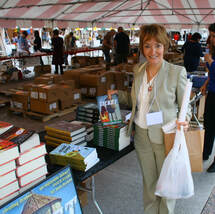
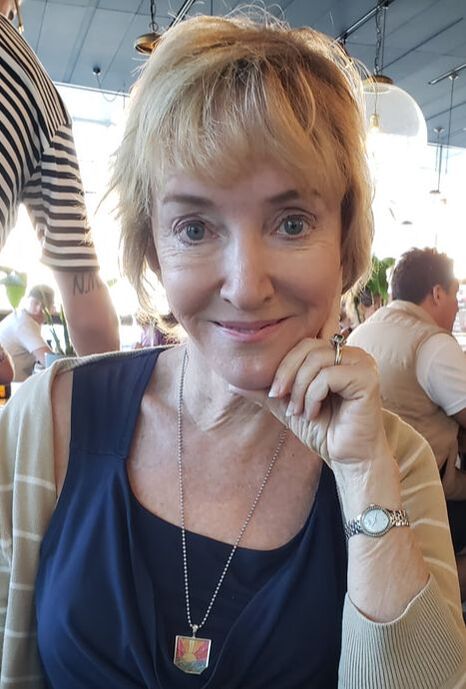
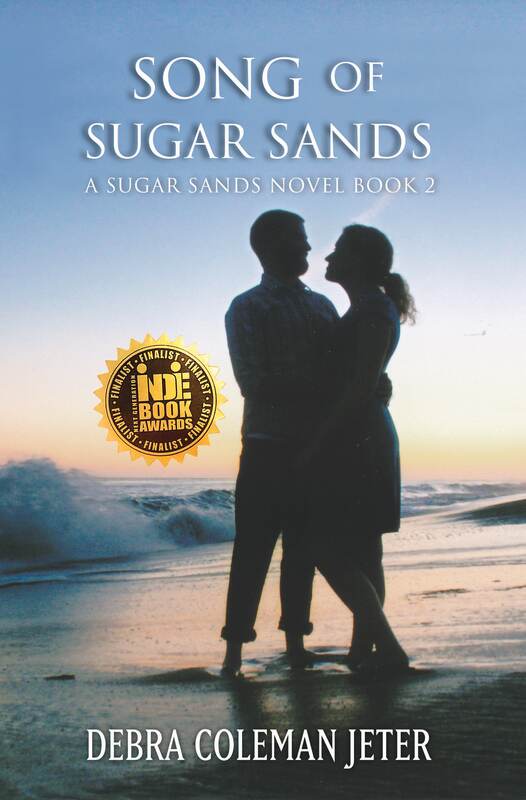
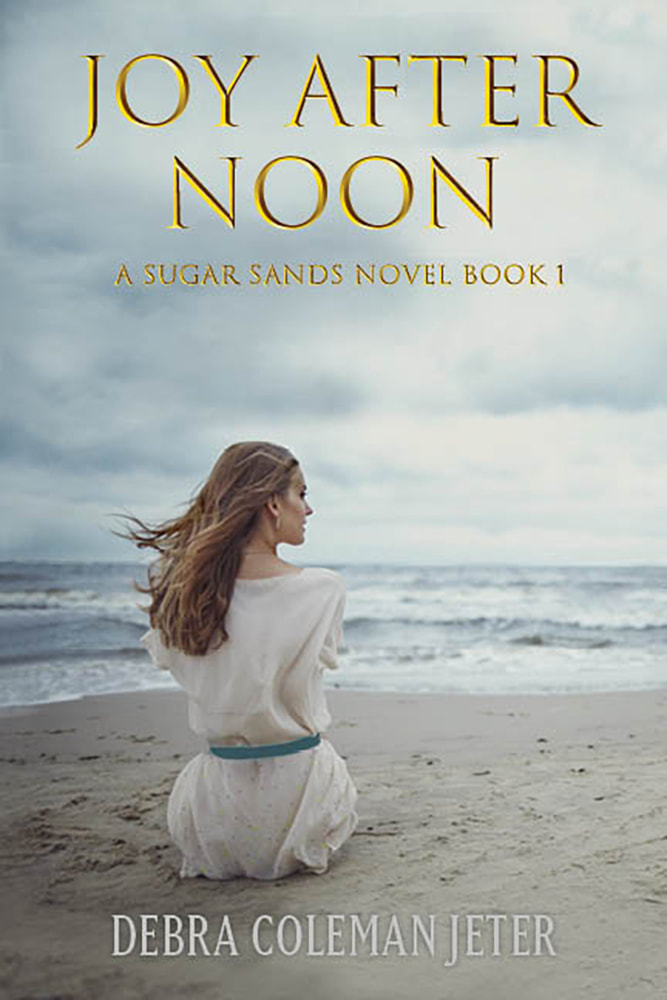

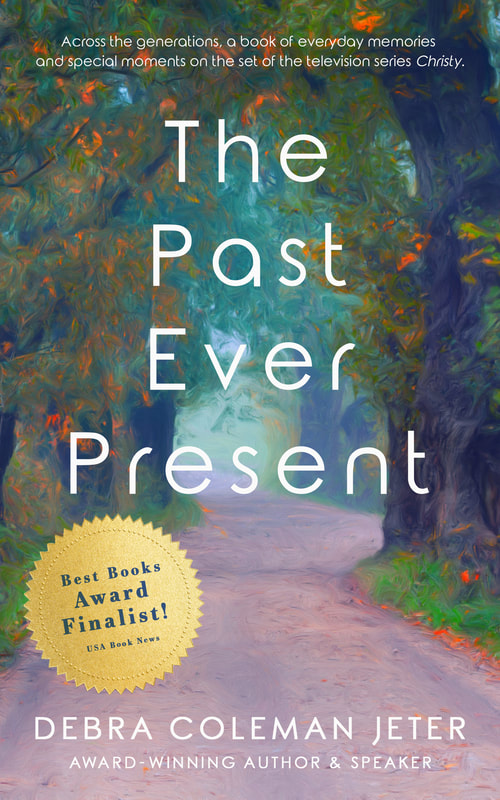
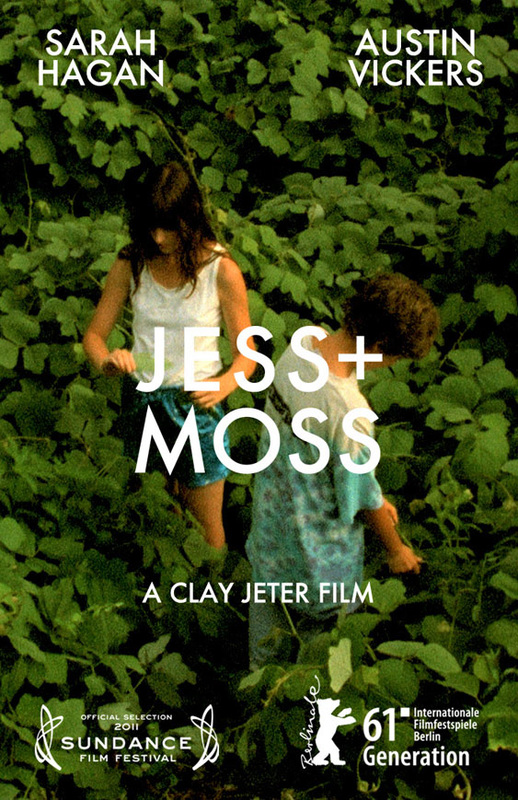
 RSS Feed
RSS Feed